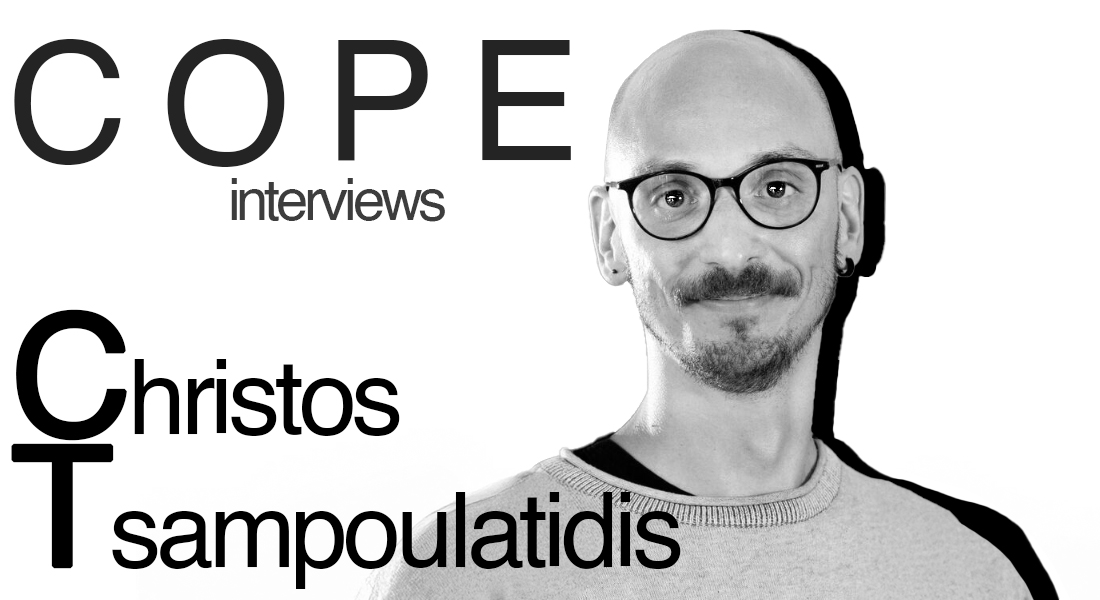Interview with Christos Tsampoulatidis
Christos Tsampoulatidis dives into his experiences while studying the Master’s in Global Health with a specialisation in Disaster Risk Management (DRM) while working as a student assistant at COPE.

Could you briefly introduce yourself and share what drew you to study global health and disaster risk management?
I am a recent graduate from the Global Health MSc with a specialization in Disaster Risk Management (DRM) from the University of Copenhagen. During my studies, I was also a Student Assistant with the Copenhagen Center for Disaster Research, at the Global Health Section. I had the opportunity to be involved with research on human geography and migration in Bangladesh, disaster risk management in India, and crisis communication in U.S. social media.
I originally have a background in Psychology and had worked as a therapist for a few years. When I started working with refugee populations in the humanitarian sector, I wanted to shift away from individual counseling towards collective and community-oriented approaches to empowerment. I knew I needed a strong theoretical foundation to understand the social factors that determine health, vulnerability and resilience. That led me to pursue Global Health and Disasters. I figured that this would be the ideal way to advance my understanding of the field of Global Health, and this program lived up to and even exceeded my expectations.
How did your studies in Disaster Risk Management complement your work as a student assistant? Can you give an example of how the knowledge you learned in your Master’s program transferred into your role at COPE?
My two roles did indeed complement each other. I want to preface this by saying that everything I learned about Disaster Risk Management built upon the invaluable theoretical foundation I got from the wider Global Health MSc. During my studies, I would delve deep into theories of Disaster Risk Management, and during my work, I would collaborate with scholars who were applying this knowledge in research. It was both a challenging and a rewarding experience. In my involvement with research projects, I got to apply my theoretical understanding in practice and critically engage with literature that I was not familiar with beforehand. So, my studies fed into my work and vice versa.
Additionally, my role in COPE revolved around communication, which required close collaboration with multiple colleagues to promote their important work. As I was preparing events with featured lecturers, I enjoyed reading up on their research as it was fundamentally within my field of interest. Dealing with the communication and logistics of a seminar and simultaneously engaging with nuances of the actual subject is a unique position to be in as a student assistant.
Did working in this role change the way you approached your studies or shaped your academic interests?
Absolutely. I learned to keep broadening my interests and understanding disasters as ongoing processes with multiple overlapping factors at play. Seeing so many different scholars working with different aspects of disasters was eye-opening and inspired me to pursue my own scholarly career path, at the intersection of multiple fields.
Given the inherent interdisciplinary nature of Global Health and Disaster Risk Management, I came to place great value on collaborating across diverse fields. I learnt that DRM has multiple intersections with human geography, critical anthropology and science and technology studies; all avenues that I am exploring research in. Currently, I am very interested in a critical view on technology within Global Health/Disaster Risk Management. I am fascinated by the impact of successfully (or less successfully) adopting digital technologies on health systems, social relations and communication practices among populations at risk.
What will you miss most from COPE?
First and foremost, I will miss the people.
Everyone in COPE and the Global Health Section has worked hard to create a warm and inclusive environment where every member feels like they are part of the team. It is an atmosphere that enables young researchers to take initiative and responsibility for their work, with plenty of mentorship opportunities from top-tier scholars. Additionally, there is a shared sense of purpose, as all of them are conducting research that (we hope) is ultimately for the benefit of marginalized and disadvantaged populations. As I move on, I carry with me all the thought-provoking conversations that I was a part of, along with the inviting environment that I greatly appreciated. I am very proud to have been a part of COPE, and I aim to help cultivate such a culture in my future workplaces.
Contact
Feel free to connect with our colleague Christos, via email or on LinkedIn.
